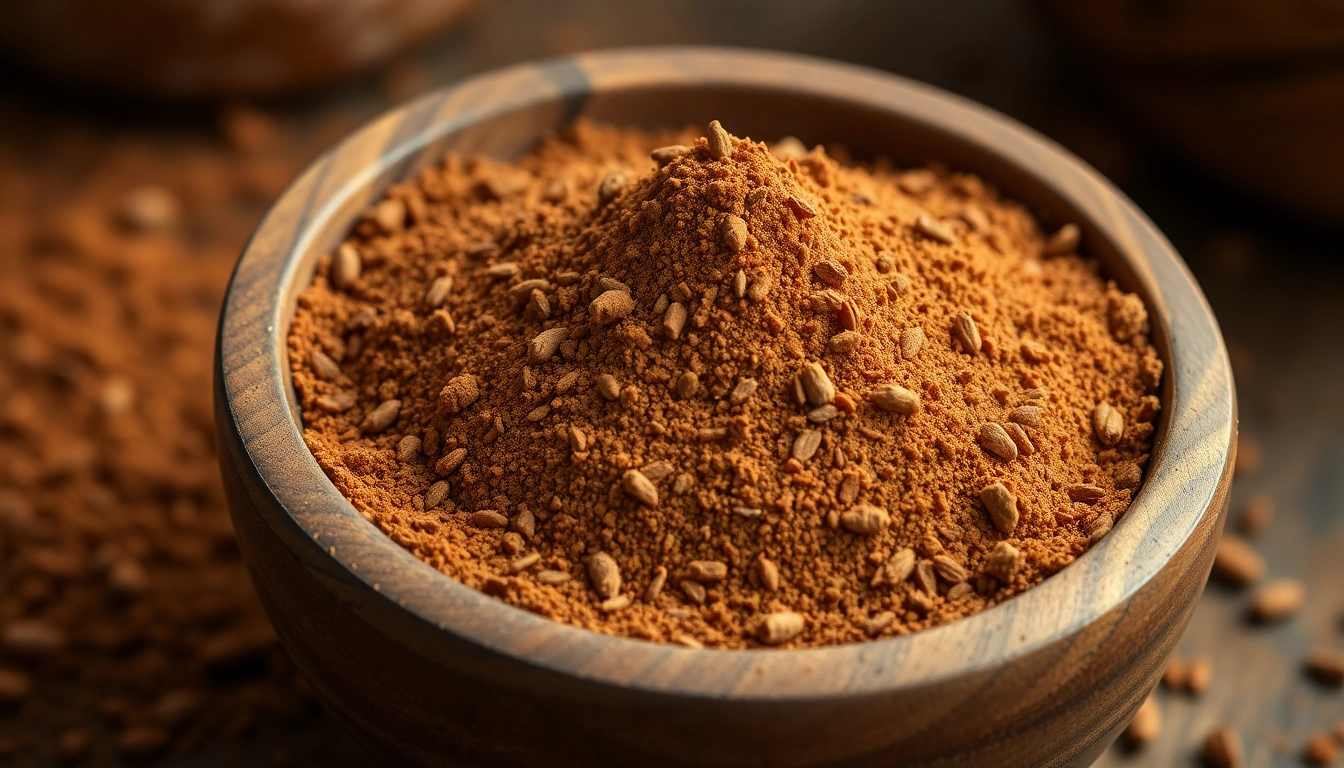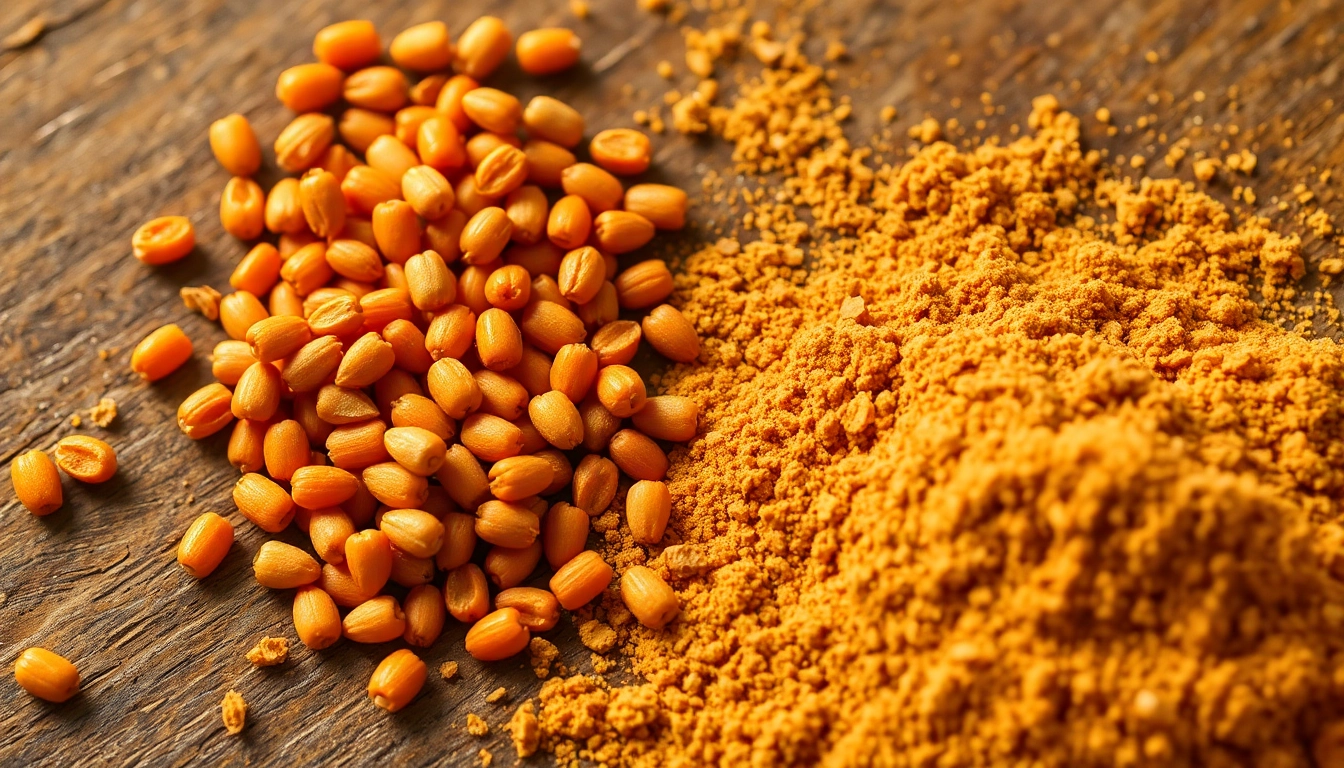Understanding Cumin Powder: Origins and Benefits
Cumin powder, derived from the seeds of the Cuminum cyminum plant, holds a revered place in culinary traditions across the globe. Its rich, earthy aroma and warm, slightly bitter flavor make it a staple ingredient in numerous cuisines, especially Indian, Middle Eastern, North African, and Mediterranean dishes. Historically, cumin has been used not only for its culinary appeal but also for its medicinal properties, dating back thousands of years to ancient Egyptian and Indian civilizations. Its presence in traditional medicine systems like Ayurveda and Unani highlights its significance in promoting digestive health, enhancing immunity, and providing antioxidant benefits.
In recent years, scientific studies have further validated cumin’s health advantages. Rich in iron, antioxidants, and essential oils, cumin powder can aid in improving digestion, reducing inflammation, and boosting metabolic functions. Incorporating cumin powder into your daily diet can thus be a simple yet effective way to enhance overall health. For those seeking high-quality, authentic cumin powder, Cumin Powder from reliable exporters ensures you gain the maximum benefits while enjoying superior flavor and purity.
Choosing the Right Cumin Powder for Your Kitchen
Factors Influencing Quality and Flavor Profiles
Selecting premium cumin powder involves understanding several key factors. Freshness is paramount; freshly ground cumin retains its aromatic oils better, offering a more vibrant flavor profile. The grind size also influences taste and cooking performance: finer powders are ideal for smooth sauces, while coarser varieties suit spice blends. The sourcing region matters, with cumin from India, Syria, and Iran renowned for distinctive flavors. Organic options further assure absence of pesticides, with certifications confirming purity.
How to Identify Authentic Cumin Powder from Adulterated Products
Authentic cumin powder is characterized by its fragrant aroma, rich dark-brown color, and free-flowing texture. To differentiate genuine products from adulterated ones, look for certifications like ISO, HACCP, or Organic India certifications. Always check the packaging for clarity, expiry date, and quality seals. A simple test is to smell the spice; authentic cumin emits a pungent, warm aroma. If the powder smells flat or chemically, it may be adulterated. Buying from reputable suppliers, such as Spice Nest, ensures you receive high-grade, unadulterated cumin powder.
Types of Cumin Powder: Whole, Ground, Organic Options
There are several forms of cumin for culinary use:
- Whole Cumin: Ideal for toasting and grinding fresh, offering maximum flavor.
- Ground Cumin: Convenient for quick addition to recipes, available in various grind sizes.
- Organic Cumin: Certified free from synthetic chemicals, suitable for health-conscious consumers.
Choosing the right type depends on your cooking style, storage capacity, and flavor preferences. Organic and freshly ground cumin generally deliver the best aroma and health benefits.
Cooking Tips: Incorporating Cumin Powder for Maximum Aroma
Best Practices for Adding Cumin Powder to Various Cuisines
For optimal flavor extraction, cumin powder should be added at specific stages of cooking. Toasting cumin seeds or powder in dry pan before adding other ingredients releases essential oils, intensifying aroma. In Indian curries, cumin is often added early in the cooking process to flavor oil, followed by spices and vegetables. In Middle Eastern dishes like kebabs or rice pilafs, a light toasting step enhances the aroma. Remember, high heat can burn cumin, leading to a bitter taste, so always monitor the cooking temperature.
Complementary Ingredients to Enhance Cumin Flavor
Cumin pairs well with garlic, coriander, turmeric, chili, and cinnamon, creating layers of warm, spicy flavors. Fresh herbs like cilantro or mint can complement cumin’s earthiness in salads, chutneys, and garnishes. Acidic ingredients such as lemon juice or vinegar can also brighten cumin-based dishes, balancing their richness.
Common Mistakes to Avoid When Using Cumin Powder
Overuse is a frequent error; a little cumin goes a long way. Using burned cumin can spoil the dish’s flavor, hence the importance of controlled heat and timing. Adding cumin too early without toasting can result in a dull flavor; thus, toasting first heightens its aroma. Lastly, storing cumin in humid or warm environments diminishes its potency—keep it in airtight containers away from sunlight.
Popular Recipes Featuring Cumin Powder
Spicy Indian Curries and Spice Blends
Cumin is an essential component in masalas and curry powders. Classic dishes like Chicken Curry, Dal Tadka, and Vegetable Sabzi showcase cumin’s ability to deepen flavors. It also provides a warm backbone in spice blends like garam masala or chaat masala, elevating the overall taste profile.
Healthy Salads and Dips Boosting with Cumin
Adding cumin powder to salads, hummus, or yogurt-based dips introduces a savory dimension. Cumin enhances nutrient absorption and provides digestive benefits, making it an excellent addition to health-focused meals. For example, cumin-seasoned chickpea salads or cucumber raita are both flavorful and nutritious.
Traditional Snacks and Street Foods with Aromatic Cumin
Street foods like roasted chana, dry bhel, or spicy nan bread gain their characteristic aroma from cumin. In South Asian street cuisine, cumin is often mixed with other spices, offering a signature flavor that appeals worldwide.
Where to Buy Authentic Cumin Powder: Quality and Certifications
Trusted Suppliers and Exporters of Premium Cumin Powder
Reliability is key when purchasing cumin powder. Leading manufacturers like Spice Nest have established themselves as sources of high-quality spices by adhering to strict quality control measures. Their extensive presence at international food exhibitions (such as Biofach 2024) attests to their commitment to excellence. Purchasing from such exporters ensures authentic flavor, GMP-compliance, and consistent supply.
Certifications Ensuring Purity and Safety Standards
Look for certifications like ISO 22000, HACCP, Organic, and FSSAI compliance. These validate the product’s safety, purity, and adherence to food safety standards. Certification not only guarantees quality but also enhances consumer confidence, especially for export markets.
Tips for Storing Cumin Powder to Preserve Freshness
Store cumin in airtight, opaque containers away from direct sunlight and moisture. Keep it in a cool, dry place, ideally in a refrigerator or pantry. Proper storage maintains aroma and prevents rancidity, ensuring your cumin retains its flavor over time. Regularly check for freshness by smelling and visual inspection before use.



